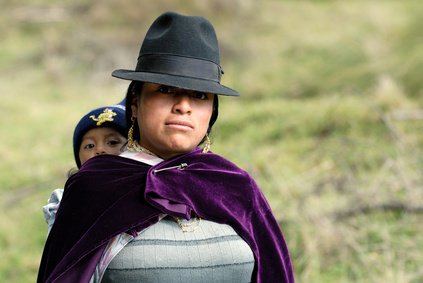 You open your eyes to find you are sitting in a cloud. The road is winding and as you pass each curve, the clouds gather, closer, until the fog outside the window is fresh and you can almost feel its powder settling into every crevice of your face. Occasionally flashes of green peaks, petals that curl upwards to grab onto the moist air. A comfortably slow conversation with your friend in the seat beside you, melancholic and then bright, like the air around you. Or you could be in a grounded treehouse, held up delicately by straight-backed bamboo that refuses to bend. In the outdoor shower, you have to step back slowly from the harsh spray, jump in using carefully timed intervals so as not to raise the hidden bumps on your arms. You can deal out the imaginary Uno cards still, wrap your tongue around the forgotten garbled Spanish conversation, the rhythm of it the aspect that still lies intact in your mind.
You open your eyes to find you are sitting in a cloud. The road is winding and as you pass each curve, the clouds gather, closer, until the fog outside the window is fresh and you can almost feel its powder settling into every crevice of your face. Occasionally flashes of green peaks, petals that curl upwards to grab onto the moist air. A comfortably slow conversation with your friend in the seat beside you, melancholic and then bright, like the air around you. Or you could be in a grounded treehouse, held up delicately by straight-backed bamboo that refuses to bend. In the outdoor shower, you have to step back slowly from the harsh spray, jump in using carefully timed intervals so as not to raise the hidden bumps on your arms. You can deal out the imaginary Uno cards still, wrap your tongue around the forgotten garbled Spanish conversation, the rhythm of it the aspect that still lies intact in your mind.
Sinking your feet into winter boots, you will experience a further sinking, into plastic boots and then into unforgiving mud, a sinking of the soul into sunlight that green trees spread. An ascension up a rock and a pause , the glistening world at your feet, a plunge. The moment when you cross the divide from secondary to primary rainforest, a small intake of breath and the quality of the air becomes clearer, more precise. Molecules lie suspended. The air feels like a hush, it too has breathed and now stands naked before you. The green laps up your eyesight. It is sly. Unbelievable, this crossing. As you raise a glass to your lips here, at your familiar table in your familiar chair, your throat will arch at the memory of harshness, your head will spin with imagined heat, soaked eyes will be brushed by fingers, the back of thumbs.
These are thoughts that spring to mind when I touch paper to pen and let myself once again slip back to Ecuador, to hikes and sing-alongs with classmates, to swimming together in the Amazon, and to spending an arduous day traveling from one dumpsite of crude oil to the next. My class and I left behind a winter night in the city, with snow sadly swirling, and landed in a different place altogether. While in the city, days could be spent sleeping until 12, pajama-clad and TV-bound, here, sleep was a commodity and days encompassed weeks. We traveled first, by open-backed pick-up trucks, to a mountain region called Junin, where we stayed in an eco-tourism cabin, run by a community who had resisted big mining companies, embracing and respecting their environment by growing coffee and sugarcane in accordance with the natural growth of the forest.
We swam in streams, Soccer and Frisbee were played with the community, and we were treated to regional food and protest music. From here, we traveled to Yungilla, a community in Ecuador’s cloud forest, and stayed with different families for the night. As well as attending a community gathering, which turned out to be a dance party, we learned about how Yungilla was self-reliant, due to their jam-making, pottery, and lotus flower trade. Riding on this triumph-of-the-underdog high, the next day was particularly painful and hard for us. Traveling on a bright green bus, we stopped at roadside cottages and jungle patches to learn about the Texaco-Chevron case.
The guilt was relentless-the crude oil dumped by our countries massive corporations was evident in the shadows in the drinking water, in the swampy intensity of the air, in the painful skin lacerations on the woman standing soberly to your right, pregnant, in the loss of the mother and brother of the man whose gentle face crinkles when he smiles and who is willing to submerge a hand in the blackest of dumping grounds. The day made my classmates and I physically and emotionally nauseas, an overpowering guilt and sadness sweeping us. We traveled by boat along the Amazon to Yachana lodge, where we hiked in the rainforest, swam in the river, ate grubs and met with other teenagers who showed us their way of life, their agriculture and their crafts.
The trip changed my life in the truest sense of the word. Every person I encountered in Ecuador generously opened their heart and told my classmates and I their stories, no matter how difficult. Their friendliness could not be grasped; it’s largeness and flexibility evades mere definition. In a documentary we watched in Junin, a statistic from the government popped up on the screen, citing it as one of the poorest regions in Ecuador. The community, however, disagreed. We have food and we have people, they said. We are not lacking. This was the most important souvenir my classmates and I brought back. The sense of cooperation and community that had pervaded every place we went to in Ecuador flowed into the veins of our class and classroom back home.
My conviction to live by kindness and empathy was strengthened, while I learned that no time was too early to glimpse an elusive sunset, that every minute should be lived to the fullest, and that injustice should be fought against and not tolerated. Travel is eye-opening in the sense that it reduces you to microscopic size as you take in the huge world around you. I was sleepily plodding through life and it woke me up.
On the last day in Ecuador, my class went to an exhibit by a local artist, Guayasamin. His paintings were full of pained faces, tears, skeletons, all a reflection on the political turmoil and suppression in his country. Yet, as we were finishing, we came across a painting with a simple blue background, a mother hugging a child. There is always sadness in the world, but in the end there is always hope. My class and I stepped out of the museum and lay on the grass, looking up at the vast sky. Use your layers to show the nuances of the world, let frustration with a messy canvas fuel you, use your brushstrokes for good, live in the smell of the linseed oil. Let your composition lead you to be a part of the world.
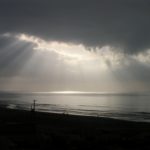
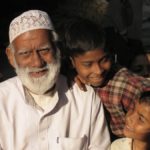
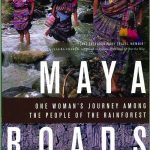
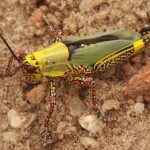

Leave a Reply